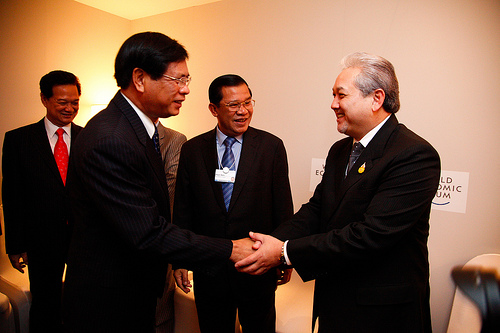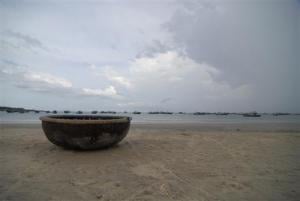China, Southeast Asia Set to Begin Free-Trade Deal

Economists see the start of a free-trade agreement between China and the Association of Southeast Asian Nations as a crucial spur to Asia's economic growth, at a time when Western economies remain sluggish.
The free-trade pact between China and the Association of Southeast Asian Nations brings together a market of 1.9 billion people. Already trade between the two is $200 billion a year, and that is expected to grow.
The deal, signed in 2002, goes into effect on Friday, January 1, creating the world's third largest trade zone behind the European Union and the North American Free Trade Agreement.
Under the pact, tariffs will be eliminated on about 90 percent of goods traded among China, Indonesia, Brunei, Malaysia, the Philippines, Singapore and Thailand. For the remaining ASEAN states, Burma, Cambodia, Laos and Vietnam, the tariff reductions will cone into effect in 2015.
Nagesh Kumar, chief economist with the United Nation's Economic and Social Commission in Bangkok, says the agreement will help build the region's economic capacity.
"Agreements such as this China-ASEAN free-trade agreement will help [in] realizing that potential and it is a part of a trend. ASEAN has similar agreements with other large Asian countries, which include Japan, [South] Korea, India, Australia and New Zealand. China was the first one to sign so it the first one to go - but there are others in the pipeline," said Kumar.
Chinese officials say about 7,000 items will have zero tariffs while preferential access will be given for companies from China and ASEAN into service industries such as tourism.
Kiat Sittheeamorn, head of the Thailand Trade Representative Office, says China's strong growth has underpinned a rapid expansion of trade with Southeast Asia, and this will continue under the trade agreement.
"If you look at the trade statistics back five years with China it has been increasing at the rate of at least 30 percent per year. China will continue to play that role, to be an important market, to continue to be an engine of growth for the region, for the whole world," said Kiat Sittheeamorn.
Kiat says there will be industries in ASEAN that face increased competition from China, particularly companies that make consumer goods such as clothes, and car parts. But he says ASEAN businesses should see the pact as an opportunity to boost their ability to compete through new technology and production methods.
China is likely to increase imports of ASEAN raw materials, food and beverages and luxury goods jewelry.









